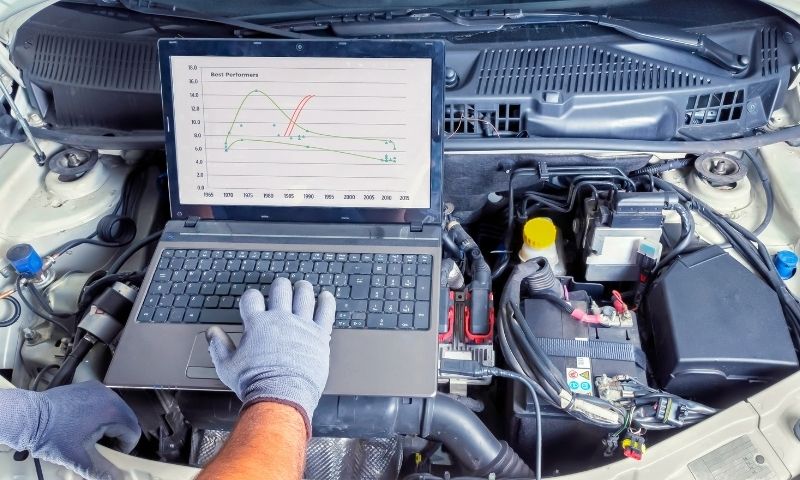A Leading Resource Built By Automotive Lovers, For Automotive Lovers.
We’ve helped consumers around the world make their purchasing decisions.
Latest Articles
Lead-acid batteries are classified as wet or dry. Wet lead-acid batteries contain a liquid electrolyte and are often used in automotive applications. Dry lead-acid batteries use gel or fiberglass mats… A dual battery system is worth it for off-grid camping. It protects your vehicle’s cranking battery and powers electronics reliably. With a solar panel, it enhances power availability. Consider your… A flooded battery is a type of standard lead-acid battery used in many vehicles. It has lead plates in a liquid electrolyte, usually sulfuric acid. Flooded batteries deliver reliable starting… A Toyota TrueStart™ battery is covered under the New Vehicle Limited Warranty for 36 months, or 24 months for some batteries. Toyota hybrid batteries have a 10-year/150,000-mile warranty. The coverage… A battery pack usually contains lithium-ion batteries. These packs connect multiple lithium-ion cells to provide high energy density. They are common in power banks and personal electronics. While lithium batteries… Yes, Nissan batteries are covered under the warranty for 3 years or 36,000 miles. Lithium-ion batteries have coverage for defects lasting up to 96 months or 100,000 miles. If your… Jeep’s Basic Limited Warranty covers the original battery for 3 years or 36,000 miles, whichever comes first. This applies to various Jeep models. Make sure your vehicle is within this… Kia’s New Vehicle Limited Warranty covers the original factory battery for three years or 36,000 miles. If you have a defective battery during this time, Kia will replace it at… Yes, the battery in your new Honda is covered under the New Vehicle Limited Warranty for 3 years or 36,000 miles, whichever comes first. Replacement 12-volt batteries bought from authorized… Hyundai covers original equipment batteries under warranty for three years or 36,000 miles. Hybrid vehicles receive a lifetime warranty on lithium-ion polymer batteries. Contact an authorized dealer for testing or… Chevrolet covers EV and hybrid batteries under an 8-year or 100,000-mile warranty for defects. The original equipment battery has a 3-year or 36,000-mile limited warranty. If you replace the battery,… Ford covers original vehicle batteries under warranty for 3 years or 36,000 miles from the installation date. This includes 12V batteries and high voltage battery capacity coverage. Some batteries may… A battery is mainly an output device. It provides electrical energy to power various devices. When charging, it acts as an input device by receiving energy. Recognizing this dual role… All batteries produce direct current (DC) voltage. This happens because of chemical reactions inside the battery. These reactions create a steady flow of electricity in one direction. Some vehicles use… A battery capacity of 99% is good for an iPhone. Apple says any capacity above 80% shows optimal battery health. Typically, iPhones lose about 1% capacity after 25 full charge… A battery is not a conductor or an insulator; it stores energy. It connects to conductors like copper wire to enable the flow of electricity. Insulators, such as rubber, resist… An iPhone battery with 80% capacity is generally acceptable. Apple recommends that a healthy battery retains at least 80% capacity after 500 charge cycles. If your battery health is 80%… An 85% battery capacity is good for an iPhone. Apple suggests that a battery should keep at least 80% capacity after about 500 charge cycles. While 85% is not brand… Yes, a 75% iPhone battery capacity is acceptable for daily use. Most iPhones maintain expected performance between 75% and 80% capacity. Users may notice reduced performance during heavy usage. If… A 79% battery capacity shows significant wear in your iPhone’s battery. This may cause performance issues and unexpected shutdowns due to higher internal resistance. Apple recommends replacing the battery when… The 12V battery is covered under Tesla’s basic warranty for 4 years or 50,000 miles, whichever comes first. This warranty covers any complete or partial battery failure related to vehicle… To safely dispose of a used vehicle battery, take it to a recycling center like AutoZone or O’Reilly to get a core charge refund. You can also use local municipal… A 12-volt battery should measure between 12.6 to 12.8 volts when fully charged. A resting voltage of 12.6 volts indicates a healthy battery. For lithium iron phosphate batteries, the ideal… To determine the age of your Optima battery, find the 12-digit number on the factory label. The last four digits show the month and year of manufacturing. For instance, a… A 9-volt battery has a nominal voltage of 9 volts. Its actual voltage can range from 7.2 to 9.6 volts, depending on the type, such as alkaline or rechargeable. The… AA batteries usually have a standard voltage of 1.5 volts. Rechargeable batteries, such as NiMH and NiCd, have a voltage of 1.2 volts. Some lithium-iron disulfide batteries can reach a… A lemon battery produces about 0.7 to 1.1 volts. Using copper and zinc electrodes can increase the voltage. You can measure the output with a multimeter. Typically, a single lemon… A Tesla battery has nominal voltages of 350V for the Model 3 and Model X, 375V for the Model S, and 400V for the Model Y. Each cell can reach… AA batteries usually have a voltage of 1.2 to 1.5 volts. New alkaline batteries can provide up to 1.65 volts. Rechargeable NiMH batteries have a nominal voltage of 1.2 volts…. A fully charged car battery shows a resting voltage of 12.6 volts when off. When the engine runs, the alternator boosts this to 13.5-14.5 volts. For accurate voltage readings, check…Lead Acid Battery: Wet vs. Dry Types, Maintenance Tips, and Key Differences
Is a Dual Battery System Worth It? Pros, Cons, Installation Tips & Camping Insights
Is a Flooded Battery a Standard Battery? Key Differences and Types Explained
Battery Coverage Under Toyota Warranty: Details, Replacement, and More
Battery Packs vs. Lithium Batteries: Types, Compatibility, and Usage Guidelines
Is a Battery Covered Under Nissan Warranty? Explore Coverage and Replacement Options
Is a Battery Covered Under Jeep Warranty? Explore Coverage, Replacement Options, and More
Kia Battery Coverage: What’s Included in Your Warranty and Common Customer Concerns
Is a Battery Covered Under Honda Warranty? Duration, Coverage, and Key Insights
Battery Coverage Under Hyundai Warranty: Details, Limitations, and Customer Insights
Battery Coverage Under Chevy Warranty: Insights on Replacement and Duration
Is a Battery Covered Under Ford Warranty? Explore Coverage, Benefits, and Details
Battery: Input or Output Device? Understanding Its Role and Electrical Functions
Is a Battery AC or DC Voltage? Key Differences Every Beginner Should Know
Is 99 Percent Battery Capacity Good? Insights on iPhone Battery Health and Performance
Is a Battery a Conductor or Insulator? Understanding Electricity and Material Properties
Is 80% Battery Capacity Bad? Explore Performance, Replacement, and User Insights
Is 85 Battery Capacity Good for Longevity? Insights on Battery Health and Replacement Timing
Is 75 Battery Capacity Good? Insights on iPhone Battery Health and Longevity
Is 79 Battery Capacity Bad for Performance? Expert Tips on Battery Health and Replacement
Is 12V Battery Covered Under Tesla Warranty? Explore Coverage and Replacement Options
How to Properly Dispose of a Used Vehicle Battery: Essential Recycling Guidelines
12 Volt Battery: How Much Voltage for Optimal Health and Lifespan?
Determine How Old Your Optima Battery Is: Decoding Manufacturer Date Codes and Types
9 Volt Battery: Voltage Specifications, Lifespan, and Performance Explained
AA Battery Voltage: How Much Voltage is in a Double A Battery and Key Metrics
Lemon Battery: How Much Voltage Does It Produce and the Science Behind It
Tesla Battery Voltage: Specs, Performance, and Charging Insights Explained
AA Battery Voltage: How Much Voltage Does a Double A Battery Have and Key Metrics
Car Battery Voltage: How Much Voltage Does a Battery Have and What You Need to Know



